Speakers 
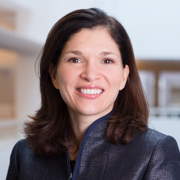
Laura Alfaro, Chief Economist and Economic Counselor, Inter-American Development Bank
Laura Alfaro is the chief economist and economic counselor for the Inter-American Development Bank. She is taking a leave from Harvard Business School, where she has been a professor since 1999. She was minister of national planning and economic policy in Costa Rica from 2010 to 2012. She is a coeditor of the Journal of International Economics and The World Bank Research Observer, vice president of the Latin American and Caribbean Economic Association, and a faculty research associate at the Centre for Economic Policy Research and the National Bureau of Economic Research. Alfaro has authored multiple articles on international economics, capital flows, foreign direct investment, sovereign debt, and trade. She earned her PhD in economics from the University of California, Los Angeles, where she received the Dissertation Fellowship award. She received a BA in economics from the Universidad de Costa Rica and a licenciatura from Pontificia Universidad Católica of Chile.
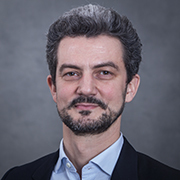
Philippe Andrade, Vice President and Economist, Federal Reserve Bank of Boston
Philippe Andrade is a vice president and economist in the Federal Reserve Bank of Boston Research Department, where he leads the International Macroeconomics section. In this role, Andrade oversees a team of economists and research assistants focused on international macroeconomic and monetary issues, in addition to global financial institutions and markets. His policy and research interests focus on the formation and macroeconomic impact of individual beliefs, inflation dynamics and macroeconomic outcomes in a global environment, as well as the transmission and the design of monetary policy. Andrade joined the Boston Fed in 2019 after serving as the head of the Monetary Policy Division at the Banque de France. Previously, he held senior economist positions at the European Central Bank and at Banque de France and was a professor at the University of Caen and an assistant professor at the University of Cergy. Andrade earned PhD and master’s degrees in economics from Université Paris Nanterre.
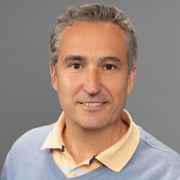
Pol Antràs, Robert G. Ory Professor of Economics, Harvard University
Pol Antràs is the Robert G. Ory Professor of Economics at Harvard University. He is also a research associate at the National Bureau of Economic Research, where he served as director of the International Trade and Organization Working Group; a research affiliate at the Centre for Economic Policy Research; and a member of the CESifo research network. Antràs served as editor of the Quarterly Journal of Economics from 2015 to 2020. He is a member of the Scientific Council of the Barcelona School of Economics. Among other distinctions, he was awarded an Alfred P. Sloan Research Fellowship in 2007 and the Fundación Banco Herrero Prize in 2009. He was elected a fellow of the Econometric Society in 2015 and a member of the American Academy of Arts and Sciences in 2024. Antràs’ teaching and research fields are international economics and applied theory. His most recent work focuses on global value chains, the interplay between globalization and interest rates, globalization and market power, and international relations. A citizen of Spain, Antràs received his BA and MSc in economics from Universitat Pompeu Fabra in Barcelona and his PhD in economics from the Massachusetts Institute of Technology.
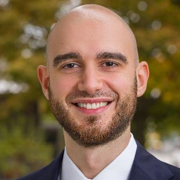
Omar Barbiero, Senior Economist, Federal Reserve Bank of Boston
Omar Barbiero is a senior economist in the Federal Reserve Bank of Boston Research Department. He joined the Boston Fed in 2020 after earning his PhD in economics from Harvard University. His fields of research are international macroeconomics, macroeconomics, and trade. Barbiero has a master’s degree in economics from Bocconi University in Italy and an undergrad degree in statistics from the University of Padua in Italy.
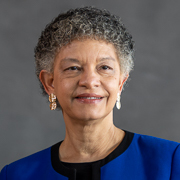
Susan M. Collins, President and CEO, Federal Reserve Bank of Boston
Susan M. Collins is president and CEO of the Federal Reserve Bank of Boston, which is part of the U.S. central bank. She is a participant on the Federal Open Market Committee, which sets U.S. monetary policy. Collins, who took office in 2022, oversees all the Boston Fed’s activities, including economic research and analysis, banking supervision and financial stability efforts, community economic development activities, and a wide range of payments, technology, and finance initiatives. Collins is a widely published international macroeconomist with a lifelong interest in policy and its impact on living standards. She began her career on the economics department faculty at Harvard University and then spent many years dividing her time as a professor of economics at Georgetown University and a senior fellow in economic studies at the Brookings Institution. Prior to leading the Boston Fed, Collins spent 15 years at the University of Michigan, most recently serving as provost and executive vice president for academic affairs and the Edward M. Gramlich Collegiate Professor of Public Policy and Professor of Economics. She previously served for a decade as the Joan and Sanford Weill Dean of the university’s Gerald R. Ford School of Public Policy. Collins earned a PhD in economics at the Massachusetts Institute of Technology and her undergraduate degree at Harvard.
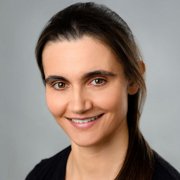
Lydia Cox, Assistant Professor, University of Wisconsin-Madison
Lydia Cox is an assistant professor in the Department of Economics at the University of Wisconsin–Madison. She is also a faculty research fellow at the National Bureau of Economic Research. Cox’s research interests are international trade and macroeconomics. She received a PhD in economics from Harvard University and a BA in economics from Stanford University.
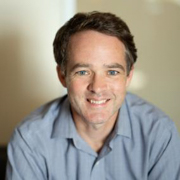
Dave Donaldson, Class of 1949 Professor of Economics, Massachusetts Institute of Technology
Dave Donaldson is the Class of 1949 Professor of Economics at the Massachusetts Institute of Technology. He teaches and carries out research on trade, both international and intranational, with applications in the fields of international economics, development economics, urban economics, economic history, environmental economics, and agricultural economics. Donaldson has studied, among other topics, the welfare and inequality effects of market integration, the impact of improvements in transportation infrastructure, how trade can mitigate and exacerbate the effects of climate change, and how economists can quantify market failures and the interventions (such as industrial policy) that attempt to fix them. He was awarded the 2017 John Bates Clark Medal, given by the American Economic Association to the U.S.-based economist “under the age of forty who is judged to have made the most significant contribution to economic thought and knowledge,” as well as an Alfred P. Sloan Research Fellowship and several grants from the National Science Foundation. He has served as a coeditor at Econometrica and the American Economic Journal: Applied Economics and is a fellow of the Econometric Society and a member of the American Academy of Arts and Sciences. A native of Toronto, Canada, Donaldson obtained an undergraduate degree in physics from Oxford University and a PhD in economics from the London School of Economics.
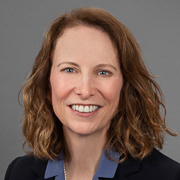
Karen Dynan, Professor of the Practice, Harvard University Department of Economics and Harvard Kennedy School
Karen Dynan is a professor of the practice in the Harvard University Department of Economics and at the Harvard Kennedy School. She is also a senior fellow at the Peterson Institute for International Economics. She served as assistant secretary for economic policy and chief economist at the U.S. Department of the Treasury from 2014 to 2017. From 2009 to 2013, Dynan was vice president and codirector of the Economic Studies program at the Brookings Institution. She is a research associate at the National Bureau of Economic Research, where she chairs the Conference on Research in Income and Wealth. Her current activities also include chairing the American Economic Association Committee on Economic Statistics, serving on the Academic Advisory Committee of the Federal Reserve Bank of Dallas, and serving on the Smith Richardson Foundation Grants Advisory Committee. Dynan was on the staff of the Federal Reserve Board (1992–2009) and served as a senior economist at the White House Council of Economic Advisers (2003–2004). Her current research interests include monetary and fiscal policy, consumer behavior, and economic measurement. She received her PhD in economics from Harvard University and her AB from Brown University.
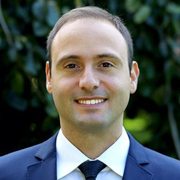
Federico Esposito, Assistant Professor of Economics, Fordham University
Federico Esposito is an Assistant Professor of Economics at Fordham University. He is interested in the economic implications of globalization and in the role of uncertainty for the propagation of economic shocks along global supply chains. In his work, he combines empirical evidence from a variety of data sources with quantitative economic models. His current projects study the interaction between trade, fiscal policies and climate change. He received a PhD in Economics from Yale University in 2016 and was previously an Assistant Professor of Economics at Tufts University.

Aaron B. Flaaen, Principal Economist, Federal Reserve Board of Governors
Aaron B. Flaaen is a principal economist in the Division of International Finance at the Federal Reserve Board of Governors and an adjunct professor at Georgetown University. His fields of interest include international trade, supply chains, and macroeconomics. Flaaen’s research focuses on industrial sector and supply chain linkages and exploring expanded economic measurement with nontraditional data sources. His academic research has been published in a variety of peer-reviewed journals and focuses on the causes and consequences of multinational firms and global trade. More recently, his work has focused on the effects of the 2018–2019 U.S.–China trade dispute on consumer prices and the U.S. manufacturing sector. In 2015, his research was awarded the Young Economist Essay award by the World Trade Organization. Findings from his research have been summarized in major news publications. Flaaen has a PhD in economics from the University of Michigan.
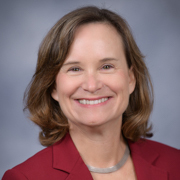
Caroline Freund, Dean, University of California San Diego School of Global Policy and Strategy
Caroline Freund is the dean of the University of California San Diego School of Global Policy and Strategy (GPS). Before joining GPS, she served as global director of trade, investment and competitiveness at the World Bank. Freund also has served as a senior fellow at the Peterson Institute for International Economics. In addition, she was the chief economist for the Middle East and North Africa at the World Bank after working for nearly a decade in the international trade unit of the research department. Freund began her career in the international finance division of the Federal Reserve Board and spent a year visiting the research department of the International Monetary Fund. She is the author of Rich People Poor Countries: The Rise of Emerging Market Tycoons and Their Mega Firms (2016) and was codirector of the World Bank’s flagship World Development Report 2020 on global value chains. She has also published many articles on the effects of regional trade agreements and edited a volume of The WTO and Reciprocal Preferential Trading Agreements (2007). Freund is a member of the Centre for Economic Policy Research and is on the editorial board of the journal Economics and Politics. Freund earned a PhD in economics from Columbia University and a BA in mathematics and economics from Bowdoin College.
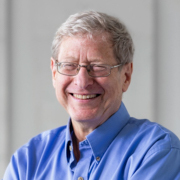
Jeffry Frieden, Professor of International and Public Affairs and Political Science, Columbia University
Jeffry Frieden is a professor of international and public affairs and political science at Columbia University. He specializes in the politics of international economic relations. Frieden is the author of Global Capitalism: Its Fall and Rise in the Twentieth Century (2007; second updated edition 2020) and Currency Politics: The Political Economy of Exchange Rate Policy (2015), and he is the coauthor (with Menzie Chinn) of Lost Decades: The Making of America’s Debt Crisis and the Long Recovery (2012). Frieden is also the author of Debt, Development, and Democracy: Modern Political Economy and Latin America, 1965–1985 (1992) and Banking on the World: The Politics of American International Finance (1987), and he is a coauthor or coeditor of more than a dozen other books on related topics. His articles on the politics of international economic issues have appeared in a wide variety of scholarly and general-interest publications. Frieden earned his PhD and BA in political science from Columbia University.
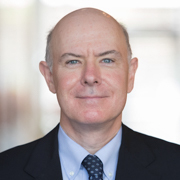
Douglas A. Irwin, John French Professor of Economics, Dartmouth College
Douglas A. Irwin is the John French Professor of Economics at Dartmouth College. He is the author of Clashing over Commerce: A History of U.S. Trade Policy (2017), which The Economist and Foreign Affairs selected as one of their best books of the year. He also is the author of Free Trade under Fire (fifth edition, 2020), Trade Policy Disaster: Lessons from the 1930s (2012), Peddling Protectionism: Smoot-Hawley and the Great Depression (2011), The Genesis of the GATT (2008, coauthored with Petros Mavroidis and Alan Sykes), Against the Tide: An Intellectual History of Free Trade (1996), and many articles on trade policy and economic history in books and academic journals. Irwin is a research associate of the National Bureau of Economic Research and a nonresident senior fellow at the Peterson Institute for International Economics. He recently was president of the Economic History Association (2023–2024). He has a PhD and an MA in economics from Columbia University and a BA in political science from the University of New Hampshire.
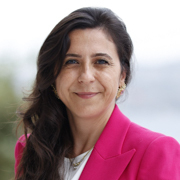
Şebnem Kalemli-Özcan, Schreiber Family Professor of Economics, Brown University
Şebnem Kalemli-Özcan is the Schreiber Family Professor of Economics at Brown University and director of the Global Linkages Lab. She is coeditor of the American Economic Journal: Macroeconomics and managing editor of Economic Policy: Papers on European and Global Issues. She is also a research associate at the National Bureau of Economic Research (NBER) and the Centre for Economic Policy Research, serving on the steering committees of the NBER’s Economic Fluctuations and Growth program and International Finance and Macroeconomics program. She advises the Federal Reserve Bank of New York and the Bank for International Settlements and is a member of the Council of Foreign Relations. Her past roles include Duisenberg Fellow at the European Central Bank, lead economist for the Middle East and North Africa region at the World Bank, Houblon-Norman Fellow at the Bank of England, and senior policy advisor at the International Monetary Fund. She was the first Turkish social scientist to receive the Marie Curie International Reintegration Grant (for her work on European financial integration). Her research examines real-financial sector linkages, global firms and banks, frictions, and international spillovers. She has authored several papers on the impact of capital flows, foreign direct investment, and corporate debt on economic fluctuations, transmission of policies, and growth. She currently works on how supply chains, exchange rates, and macro-trade policies shape global and domestic outcomes.
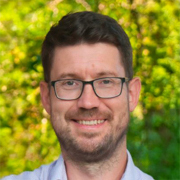
Andrei A. Levchenko, John W. Sweetland Professor of International Economics, University of Michigan
Andrei A. Levchenko is the John W. Sweetland Professor of International Economics at the University of Michigan. He is also the coeditor of the American Economic Review and the director of the International Trade and Macroeconomics Program of the Central Bank Research Association. In addition, Levchenko is a research associate at the National Bureau of Economic Research and a research fellow at the Centre for Economic Policy Research. He was an economist at the International Monetary Fund (2004–2009) and the editor-in-chief of the IMF Economic Review (2021–2025), and he has held visiting positions at the University of Chicago Booth School of Business, HEC Lausanne, and the University of Zurich. Levchenko’s current research focuses on the propagation of macroeconomic shocks within and across borders. His research has been funded by several agencies, including the U.S. National Science Foundation and the U.K. Department for International Development, and it has appeared in a variety of academic journals. Levchenko received a PhD in economics from the Massachusetts Institute of Technology and a BA in economics, mathematics, and Italian from Indiana University Bloomington.
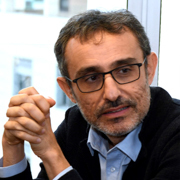
Tommaso Monacelli, Professor of Economics, Università Bocconi
Tommaso Monacelli is a professor of economics at Università Bocconi in Milan and a fellow of the Innocenzo Gasparini Institute for Economic Research, the Centre for European Economic Policy, and the Kiel Institute for the World Economy. He previously was an associate professor at Università Bocconi and an assistant professor at Boston College. Monacelli is a managing coeditor of Economic Policy and an associate editor of the Journal of the European Economic Association, the Journal of Money Credit and Banking, and the IMF Economic Review. He has been a visiting professor at Columbia University and Central European University, a research consultant for the European Central Bank (ECB) and the Organisation for Economic Co-operation and Development, and a visiting scholar at the International Monetary Fund, the ECB, and Sveriges Riksbank. Monacelli is the author of Il Prezzo delle Mele (The Price of Apples, 2024), and his research has been published in several international academic journals. His research interests include monetary economics, macroeconomics, and international macroeconomics. He holds a PhD and an MA in economics from New York University and a BA in economics and social sciences from Bocconi University.
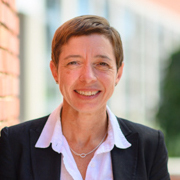
Layna Mosley, Professor of Politics and International Affairs, Princeton University
Layna Mosley is a professor of politics and international affairs at Princeton University. She directs the Princeton Sovereign Finance Lab, which is part of the Niehaus Center for Globalization and Governance. Her research focuses largely on the international and domestic politics surrounding government borrowing, especially but not exclusively in Global South countries. Mosley is author of Labor Rights and Multinational Production (2011) and Global Capital and National Governments (2003) as well as editor of Interview Research in Political Science (2013). She currently serves as coeditor-in-chief of International Organization. She previously held faculty positions at the University of North Carolina at Chapel Hill and the University of Notre Dame. Mosley holds a PhD and an MA in political science from Duke University and a BA in international relations from Rollins College.

Peter K. Schott, Juan Trippe Professor of International Economics, Yale School of Management
Peter K. Schott is the Juan Trippe Professor of International Economics at the Yale School of Management. His research focuses on how firms and workers respond to globalization. His most recent projects examine the decline of U.S. manufacturing employment during the 2000s, the relative export quality of developing versus developed economies, and the relationship between trade policy and firm productivity. Since 2014, Schott has served as executive director of the Yale Census Research Data Center, a branch of the New York Research Data Center. Schott has provided consulting services for the World Bank and the Inter-American Development Bank, among other institutions. He has delivered numerous invited lectures at universities nationwide and in China, Japan, Spain, and Germany, among other countries. His executive teaching includes sessions at the Beijing CEO Summit, with the J.P. Morgan Chase Fellows, and for the Tianjin Economic-Technological Development Area in Tianjin, China. Schott earned his PhD in business economics and MS in political science from the University of California, Los Angeles, and his BS in finance from the University of Pennsylvania.

Viacheslav Sheremirov, Principal Economist and Policy Advisor, Federal Reserve Bank of Boston
Viacheslav Sheremirov is a principal economist and policy advisor in the Federal Reserve Bank of Boston Research Department. His research focuses on macroeconomic issues such as pricing, the effectiveness of monetary policy and fiscal policy, exchange-rate dynamics, and global imbalances. He is also interested in applied time-series analysis and macroeconomic history. His research has been presented at numerous invited seminars and at conferences organized by the National Bureau of Economic Research, the Econometric Society, the Royal Economic Society, and the Society for Economic Dynamics. Sheremirov joined the Boston Fed in 2014 after earning his PhD in economics from the University of California, Berkeley. He holds a BA in economics from Odessa National Mechnikov University in Ukraine and an MA in economics from the Economics Education and Research Consortium at the National University “Kyiv-Mohyla Academy” in Ukraine.
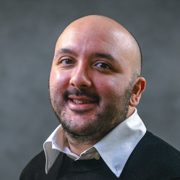
Alvaro Silva, Economist, Federal Reserve Bank of Boston
Alvaro Silva is an economist in the Federal Reserve Bank of Boston Research Department. He joined the Boston Fed in 2024 after earning his PhD in economics from the University of Maryland. His fields of research are international macroeconomics and trade. Silva has an MA in economics from the University of Maryland, an MSc in applied economics (with honors) from Universidad de Concepción, and a BSc in economics (with honors) from Universidad de Concepción.
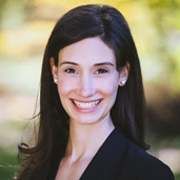
Hillary Stein, Economist, Federal Reserve Bank of Boston
Hillary Stein is an economist in the Federal Reserve Bank of Boston Research Department. She joined the Boston Fed in 2022 after earning her PhD in political economy and government from Harvard University. Her fields of research are international finance and macroeconomics, international political economy, and trade. Stein has a BA in applied mathematics from Harvard University.
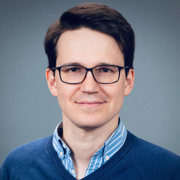
Ludwig Straub, Professor of Economics, Harvard University
Ludwig Straub is a professor of economics at Harvard University. His research areas are macroeconomics and international economics. Among his topics of interest are the relationship between rising economic inequality and the natural rate of interest as well as the study of fiscal and monetary policy in heterogeneous-agent models. Ludwig is the recipient of the 2022 AQR Young Researcher Prize and a 2024 Sloan Fellowship. He obtained his PhD in economics from the Massachusetts Institute of Technology; a master’s degree in mathematics from Trinity College in Cambridge, England; and a bachelor’s degree in physics from Ludwig Maximillians University of Munich.
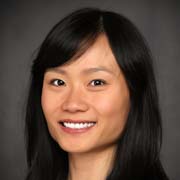
Jenny Tang, Vice President and Economist, Federal Reserve Bank of Boston
Jenny Tang is a vice president and economist in the Federal Reserve Bank of Boston Research Department, where she heads the Macroeconomics Monetary group. Her research interests include macroeconomics, monetary policy, and international finance. She earned her BS in economics and international business at New York University and her MA and PhD in economics at Harvard University.
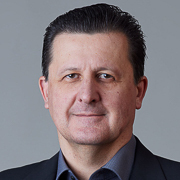
Egon Zakrajšek, Executive Vice President and Director of Research, Federal Reserve Bank of Boston
Egon Zakrajšek is an executive vice president and the director of the Federal Reserve Bank of Boston Research Department. Among Zakrajšek’s primary responsibilities is oversight of the work of the department, including economic analysis for the monetary policy deliberations of the Bank’s president and board of directors. Zakrajšek’s policy and research interests focus on macrofinance, banking, inflation dynamics, and monetary policy. Previously, Zakrajšek was a senior advisor in the monetary and economic department of the Bank for International Settlements. He began his career in the research department of the Federal Reserve Bank of New York and later joined the Division of Monetary Affairs at the Board of Governors of the Federal Reserve System. He holds a PhD in economics from New York University.